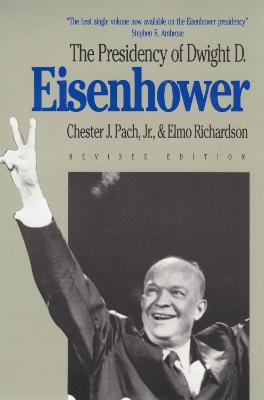American Presidency
1 total work
The Presidency of Dwight D. Eisenhower
by Chester J. Pach and Elmo Richardson
Published January 1986
The focus of this work is not whether Eisenhower was an active or passive president, but how his decisions shaped American life in the 1950s and beyond. This updated edition reaches beyond the issues the revisionists raised: Was Eisenhower in command of his own administration? Did he play a significant role in shaping foreign and domestic policy? Drawing on a wide range of works published within the past decade, the author expands the original 1979 edition of this study. In addition to new material on national security policy, he deepens the analysis of Eisenhower's leadership and managerial style and explores the significance of the decisions Eisenhower made on a range of critical issues, from civil rights to atomic testing. The author breaks with the dominant school of Eisenhower historiography. He concludes, for example, that Eisenhower's commitment to support South Vietnam in 1954, with its attendant responsibilities and consequences, was far more important - and ultimately disastrous - than his refusal to intervene with military force in support of the French in 1954. Eisenhower's unleashing of the CIA (in Iran, Guatemala and elsewhere) also draws sharp criticism, as does his timid and ineffective handling of McCarthy. Yet the author also praises Eisenhower's principled efforts to restrain defence spending and to expand developmental aid to Third World nations.
